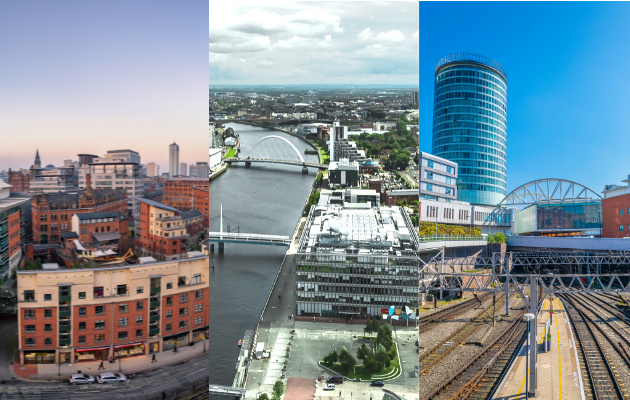00Executive summary
This Government’s ambition to ‘level up’ is well known and was a central promise in the December 2019 election. While it is a phrase that is much used, it is one that has not yet been defined. And, because there are inequalities on many measures across the country, it has been inferred to mean a great many things.
In advance of the forthcoming Levelling Up White Paper, this briefing sets out what levelling up should achieve and how the Government should go about achieving it. It argues that levelling up should have the following goals:
1. Level up standards of living across the country. There is no inherent reason why one part of the country should have poorer skills or lower life expectancy than another. There are direct levers the Government can pull to change this.
2. Help every place reach its ‘productivity potential.’ The scale of this challenge varies across the country, as does the gap between current and potential performance, and so levelling up the economy cannot mean making everywhere the same.
Productivity potential varies because different parts of the country play very different roles in the economy. While we should want rural Cornwall, for example, to perform as best as it possibly can, we should not expect it to be as productive as central Manchester. These differences come about because of the inherent advantages that different parts of the country offer to businesses. Cornwall offers spectacular scenery. Manchester offers access to a large number of workers and a network of other businesses to interact with, particularly in its city centre. There is very little governments can do to change these inherent advantages, despite what politicians are fond of promising.
The problem for the UK economy is that most of its big cities make very poor use of their inherent advantages, and they trail far behind their comparators such as Munich and Milan as a result. We should expect big productivity differences between Manchester and Cumbria but we should not expect them between Manchester and Bristol. Currently, neither of these things is true. This weighs heavily on both regional prosperity and the performance of the national economy, costing the latter close to an estimated £50 billion per year.
So while it is right to improve Hartlepool’s economy, for example, as much as policy has the power to do so, the message to the Government is clear: it will not level up the economy unless it tackles the underperformance of Birmingham, Manchester and Glasgow in particular. This is sometimes seen as an argument for ignoring smaller places. It is not – it is a plea not to ignore the long-running underperformance of some of Britain’s largest economies.
The good news for policy-makers is that the much stronger performance of equivalent large cities on the continent shows that this is very much achievable. To do so, it needs to improve the benefits that these cities offer to businesses to make them more attractive places for the private sector to invest.
To deliver on both of these goals, the Government should:
- Increase skills spending in parts of the country that lag the current national average.
- End austerity for local government to improve the day-to-day services that people across the country experience.
- Reform local government and devolve powers to give local areas more power over services and spending.
- Facilitate bus franchising across the country to improve services, but focus transport infrastructure predominantly in and around big cities where pressure on the network is greatest.
- Invest in struggling city centres to make them more attractive places to do business through a City Centre Productivity Fund.
- Target R&D spending in places that currently underperform but have enough existing activity to suggest that increased public spending would have greatest impact.
